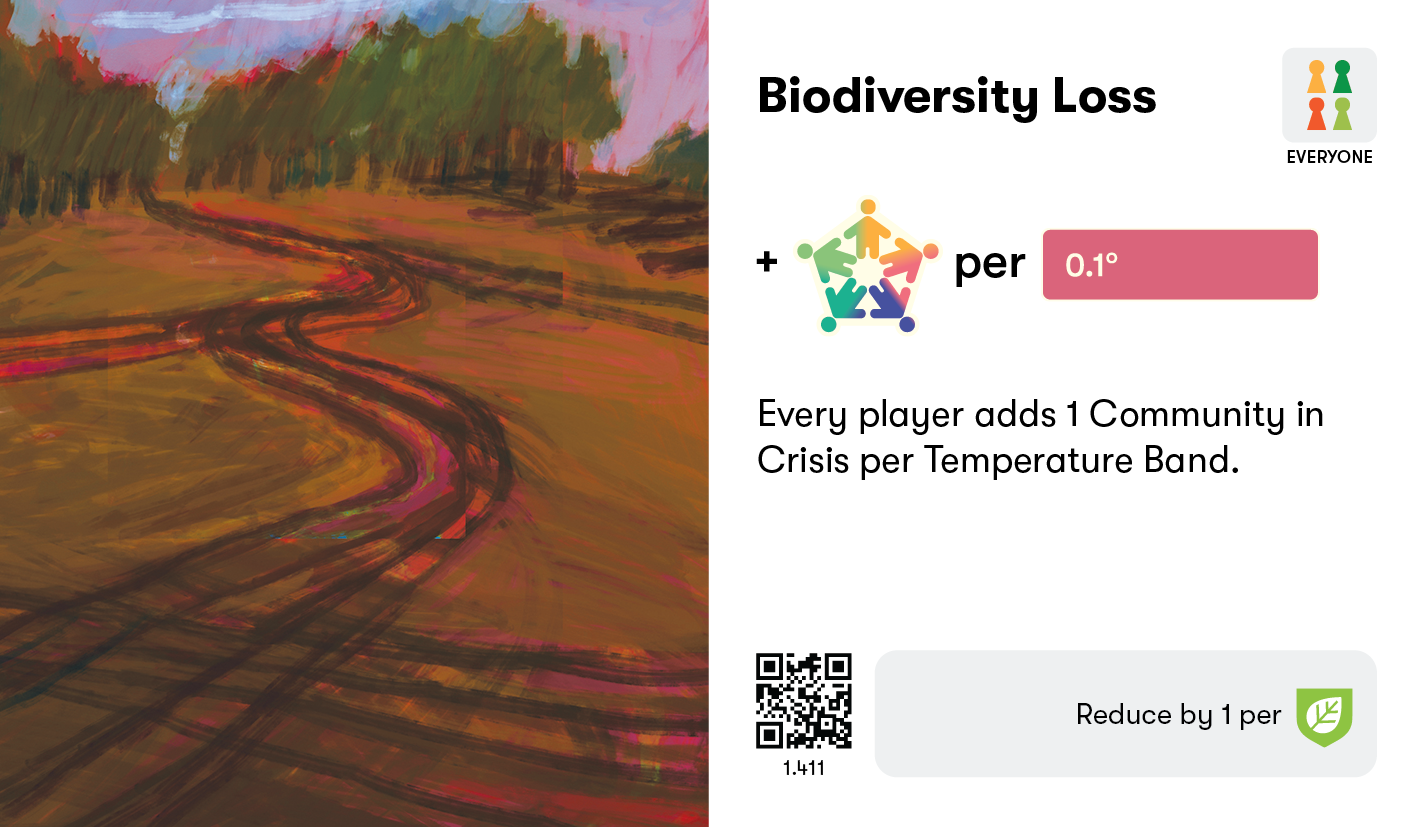Biodiversity Loss
Crisis
Biodiversity refers to the variety of living beings in a given area, be that a particular biome, or the planet as a whole. While biological systems have value in their own right, humanity also depends on them and is connected with them – our food, water, medicine, pollution reduction, stable climate, natural protection from floods and storms, and livelihoods are all entwined with ecosystems.
The loss of biodiversity around the world is a major crisis. Thanks to industrial and agricultural activity by humans, different species are going extinct: at up to 1000 times higher than pre-industrial rates, with around one million species threatened with extinction over the coming decades. This is made worse by the climate emergency, also caused by humans, which is altering the conditions that ecosystems grow in.
Losing biodiversity undermines ecosystems' abilities to function effectively and efficiently, reducing their ability to adapt to changing conditions. This loss of ecosystems also affects our own lives. For example, the loss of genetic diversity reduces crop yields as ecosystems become less fertile and resilient. Loss of soil biodiversity also makes soil less resilient and undermines its ability to support wild and cultivated food plants. 60% of the world's population use largely plant-based traditional medicines, particularly people of a lower socioeconomic background. Around 50% of modern drugs have been developed from natural products, and new discoveries are undermined by biodiversity loss. Losing ecosystems in these ways also reduces the amount of greenhouse gas emissions they can absorb, our only way to reduce the amount in the atmosphere.
Protecting ecosystems and increasing biodiversity needs to be tackled as seriously as greenhouse emissions do. This might include promoting diverse crop planting over monocultures. For example, large-scale afforestation programmes on the Loess Plateau in China have shown that plantations of single, non-native species have compromised local water supplies . We also need large scale ecosystem restoration programmes, and to avoid continuous urban sprawl where we already have space for homes in existing buildings.
Every player must add 1 Community in Crisis per Temperature Band.
Players can reduce this effect by 1 for each Ecological Resilience token in their player board.
For example: 5 Temperature Bands – 3 Ecological Resilience = add 2 Communities in Crisis.
Resilience tokens are not discarded.

Advocate for nature restoration, reforestation and biodiversity enhancement policies by writing to your elected representatives to express your support for relevant policies at local, national, and international levels.
Ask politicians to ensure that regenerative farmers are economically rewarded for their efforts, and ban unsafe practices.
Buy certified goods produced sustainably, such as timber, chocolate, coffee and paper products, helping to prevent deforestation and habitat destruction.
Support and volunteer with organizations working on restoration projects, encouraging friends and family to take similar actions to support restoration efforts.